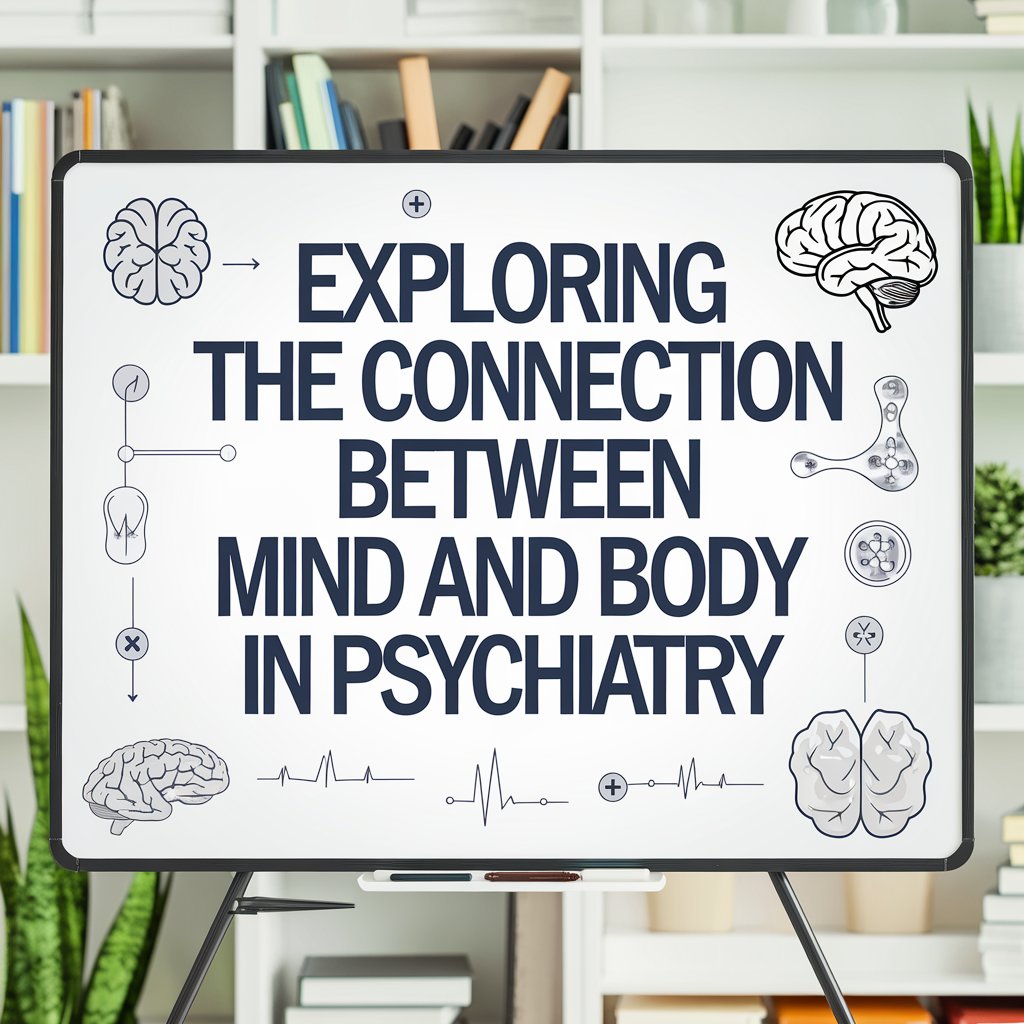The connection between mind and body is an age-old concept, yet its relevance in psychiatry continues to grow. The idea that mental health cannot be separated from physical well-being has become increasingly recognized. In psychiatry, this integrated approach to treatment is reshaping how mental health conditions are understood and managed.
How Mental Health Affects the Body
Mental health disorders often have a profound impact on physical health, sometimes presenting as unexplained physical symptoms. Anxiety, for example, can lead to chronic headaches, muscle tension, and gastrointestinal issues. Depression might manifest as fatigue, digestive problems, or even pain, which many fail to associate with the mental state. These physical symptoms are more than just side effects—they reflect the way the mind can shape the body’s functioning.
Additionally, psychiatric conditions can influence brain chemistry and neural pathways, affecting overall bodily function. Conditions like PTSD, bipolar disorder, and schizophrenia have been linked to changes in brain structure and function, further demonstrating the profound interrelation between the mind and body. Psychiatric professionals now acknowledge that mental health is not confined to the brain alone; it resonates throughout the body.
Exploring the Role of Stress in Physical Health
Stress is a major factor in the mind-body connection. It affects not just mood and emotions but also a wide range of physical systems. Long-term stress can elevate cortisol levels, leading to immune suppression, increased inflammation, and higher susceptibility to illness. The physical toll of chronic stress is well-documented, yet its effects on mental health are equally significant, often triggering or exacerbating psychiatric disorders.
Interestingly, managing stress effectively can result in improvements in both mental and physical health. Techniques like meditation, deep breathing, and progressive muscle relaxation not only calm the mind but also regulate the body’s stress response. When stress is reduced, the risk of physical ailments like cardiovascular disease, high blood pressure, and even diabetes decreases, demonstrating the profound impact of mental well-being on physical health.
Holistic Psychiatry: A More Comprehensive Approach
Psychiatrists are increasingly moving away from viewing mental health in isolation. A holistic view of psychiatry acknowledges that mental health involves a delicate balance of factors, from genetic predisposition and environment to lifestyle choices and physical health. Modern psychiatric practice emphasizes the importance of treating the whole person, integrating mental health care with strategies that support physical wellness.
Nutrition, for instance, is being recognized as a cornerstone of mental well-being. The gut-brain connection is a growing area of interest in psychiatric research, with studies suggesting that a healthy gut microbiome can influence mood regulation and cognition. As a result, nutrition is becoming an important aspect of treatment for conditions like depression and anxiety, where dietary interventions can improve mental health outcomes.
Incorporating practices such as yoga, tai chi, or acupuncture also helps to address both mind and body. These techniques reduce stress, improve circulation, and promote overall relaxation, which has positive effects on mental health. As part of this approach, Haven Integrative Psychiatry emphasizes the synergy of body-based therapies with conventional psychiatric treatment, allowing individuals to achieve more lasting improvements in mental wellness.
The Future of Psychiatry: A Unified Approach
The future of psychiatry is leaning toward a more integrated, unified approach to care. Rather than simply treating symptoms in isolation, there’s growing recognition of the need to treat the person as a whole—addressing the interplay between the mind, body, and environment. This comprehensive approach to psychiatric care not only leads to more effective treatment outcomes but also encourages a more compassionate and personalized form of care.
By continuing to explore the complex connection between mental and physical health, psychiatry is evolving toward a more inclusive model of care, one that acknowledges the profound impact of the body on the mind and vice versa. Integrating mental and physical health practices will allow future generations to thrive, offering more personalized, holistic treatment options for mental health disorders.





